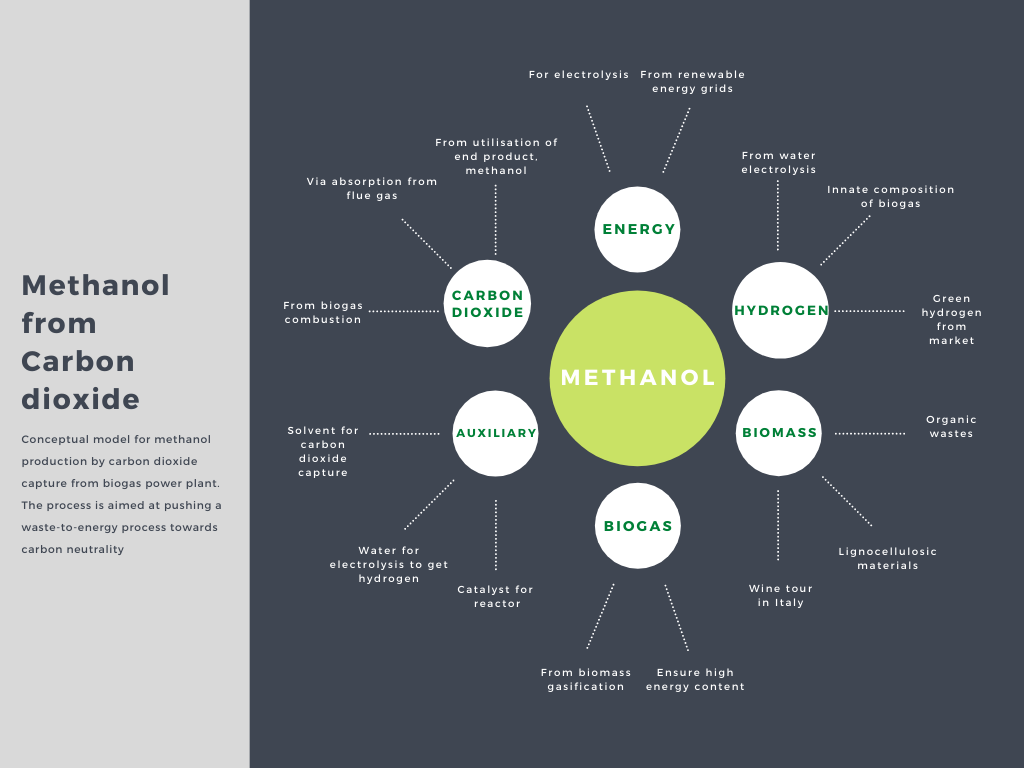It was a mundane weekday during the initial days of lockdown in Germany due to Covid-19 pandemic. The univeristy was closed and my friend, Arjun Neyyathala and I were brooding about how regular life and free movement has come to a halt and how unproductive we’ve been feeling ever since we restrained ourselves inside our homes. We’d come up with numerous ideas to get productive but gradually lose motivation and drop them. As we were going through our fossilised LinkedIn profiles, hoping to find something indulging, I happened to come across an interesting promoted message in my inbox. It was an invitation from the Marketing Manager working at ekipa GmbH to an innovation challenge – “CO2 – from waste to value”.
What is ekipa GmbH? It is an innovation platform in Germany which brings together companies, students, researchers and investors to find solutions to various technical, environmental, social and economic challenges. It is an open platform where people from relevant backgrounds are welcome to participate in challenges, meet people, build networks and work on innovative solutions. For details about ekipa GmbH, follow the link https://ekipa.de/en/
What was our innovative idea? It was serendipity that the topic of the challenge aligned with both our areas of interests and we finally found something we could get involved in for a while, to stay productive. Due to our hitherto unawareness of ekipa, we were able to join this challenge merely two weeks before the deadline. After spending days rushing to come up with an innovative process to capture and utilise CO2, we ideated on “CO2 capture for methanol production integrated with a medium-scale biogas plant” and barely made it before the deadline with an elaborate process description and a running simulation model.

What makes the idea special? The main objective of the idea was to push a medium-scale electricity production by a biogas plant towards carbon neutrality. Biogas consists mainly of methane which undergoes combustion for electricity generation. The combustion step releases significant amount of CO2 which we planned to capture using amine absorption technology and then use the captured CO2 to produce methanol by hydrogenation. Based on the composition, the required hydrogen can be obtained from biogas itself or via. water electrolysis. Using this concept, an energy carrier and a valuable chemical, methanol is obtained from bio-waste and the entire process tends to carbon neutrality.
Is the concept full proof? There are a few challenges in realising this concept. The water electrolysis step to produce hydrogen is energy intensive and depending on electricity from conventional grids to meet the energy demand would indirectly make the process dependent on fossil fuels and would nullify the main motive behind this concept. Electricity production from biogas combustion can partly satisfy the energy demand but not completely. The best choice would be to reply on renewable energy grids for electricity. However, the running cost of the process would be significantly high.
On a positive note This concept can be categorised under the family of Power-to-X processes which are currently characterised by high energy demand. Dependence on renewable energy makes these processes cost intensive, considering the efficiency of current energy systems, their economics and the existing policies and infrastructure that facilitate utilisation of fossil fuels over renewable energy sources in the mainstream. If we look at future trends, few years down the line, technological advancements for achieving sustainability and climate change goals are predicted to boost development of renewable energy systems and expansion of renewable electricity grids, which will lead to significant cost reduction for renewable electricity. With the reduction of this pre-dominant factor in the overall cost of the process, the proposed concept is expected to gain significant relevance in the near future.
How did we perform in the challenge? Among experienced researchers and industry professionals we failed to secure a position among the top three ideas. However, a personal feedback from the evaluation team revealed that we shared the topmost position with two other teams in terms of technological innovation. The drawback of our concept was economic infeasibility and working around this drawback and coming up with a business model was a challenge we couldn’t overcome due to our inexperience in entrepreunership and meagre idea about the economic institutions in Germany. Nevertheless, it was a learning experience for Arjun and me and due to our promising conceptualisation of “CO2 – from waste to value” we were offered membership at the alumni club of ekipa, where we’ve been networking and ideating with students, professionals and veterans across various disciplines ever since.
(To know more about the project, please visit my github repository. For questions and feedbacks, please use the comment section below)